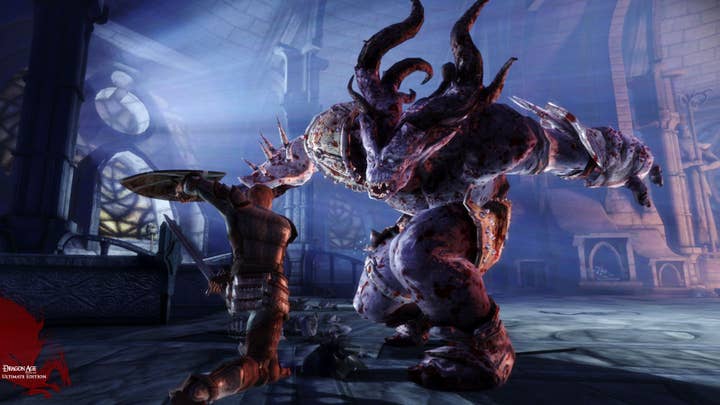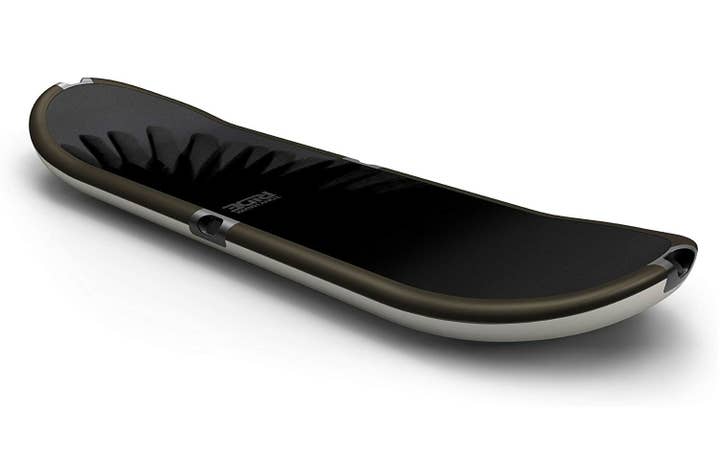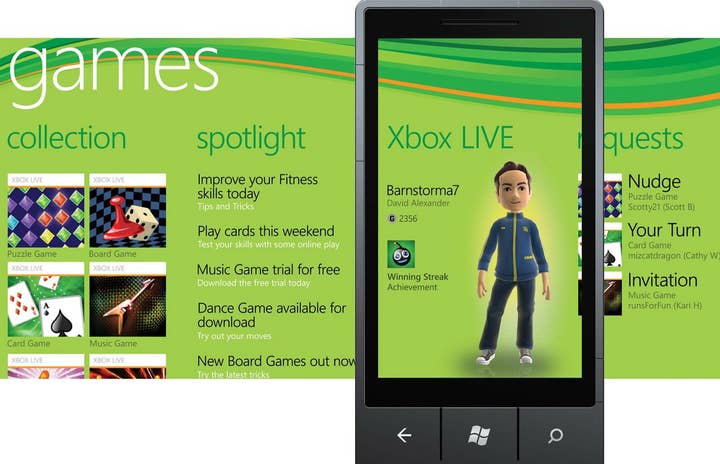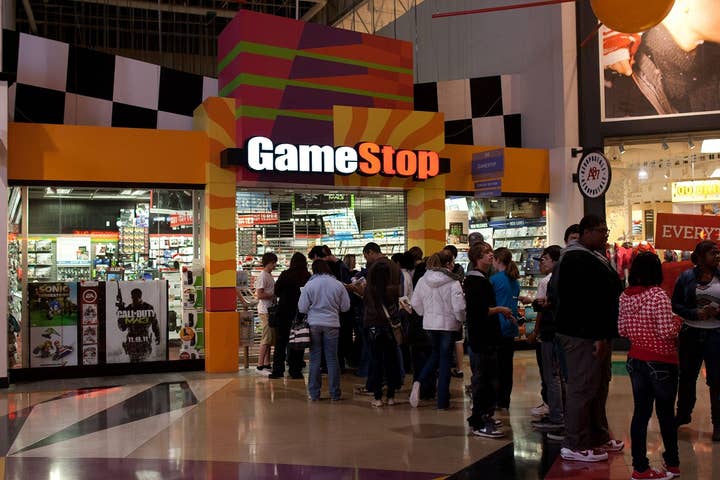Steam works wonders for the retail PC market
10 Years Ago This Month: Valve buddies up with GameStop, BioWare talks industry maturity, and the expensive peripheral trend cools off
The games industry moves pretty fast, and there's a tendency for all involved to look constantly to what's next without so much worrying about what came before. That said, even an industry so entrenched in the now can learn from its past. So to refresh our collective memory and perhaps offer some perspective on our field's history, GamesIndustry.biz runs this monthly feature highlighting happenings in gaming from exactly a decade ago.
Retail and digital distribution don't compete, silly
Sometimes people in games say things and you instantly know they are wrong, whether in good faith or bad. But usually, that certainty only comes with time.
July of 2009 was full of statements that may have seemed defensible, level-headed, or even insightful at the time, but turned out to be almost sublimely wrong. Let's start with Valve, which at the time was getting the word out about how free weekend promotions on Steam actually produced boosted paid sales of the games, both on Steam and at retailers.
That was an interesting bit of insight that seems to have inspired plenty of developers to participate in various bundle promotions and subscription services, but as Valve's Doug Lombardi was dropping that nugget, he also pushed back at rumors of a rift between Valve and retailer GameStop over the impact Steam was having on brick and mortar business.

"A lot of the 'Steam is there to compete with retail' stuff is sort of sensationalized," Lombardi said. "We spent more money at GameStop in the US promoting Left 4 Dead than we did at any other chain. We sold more copies of Left 4 Dead at GameStop than we did at any other chain."
Incidentally, the NPD Group's US sales total for retail PC games in 2008 (the most recent tally when Lombardi cried sensationalism) was $701 million. The NPD Group doesn't even bother to break PC retail sales out in its public reports any more, but when we asked they told us the 2018 tally for PC retail game sales was $35 million. (Or to put it another way, every boxed PC game sold in the US last year put together would still be $15 million shy of qualifying for Steam's highest revenue sharing tier for individual games.)
It may be easy to forget these days, but in July 2009 the industry was still hesitant to embrace digital distribution. Microsoft had just announced the month before that it would start selling full retail Xbox 360 games digitally, and even then it would begin with a selection of older titles. Sony's director of PlayStation Network operations Eric Lempel responded in July by confirming it had no immediate plans to offer PlayStation 3 retail games digitally, citing the size of Blu-ray discs (this in an interview where he was saying that Sony had caught up to Microsoft's online efforts).
Even on the PC, Realtime Worlds head Dave Jones said he wasn't comfortable relying on digital distribution for the company's anticipated massively multiplayer PC game APB, because "it's still a traditional game in that this is a five or six gig game. It has to ship on a DVD."
Anthem studio singing a different tune
"A lot of the 'Steam is there to compete with retail' stuff is sort of sensationalized"
Doug Lombardi, Valve
Here we have BioWare co-founders Ray Muzyka and Greg Zeschuk talking about the maturity of the medium of games. Zeschuk says that the studio has been kicking around the idea of games where players can choose to go through the traditional combat-heavy experience of video games, or opt to just enjoy the story (an idea that, when coming from a woman at BioWare, would have her called "the cancer that is killing BioWare" and subjected to a harassment campaign by "fans" of the studio).
Muzyka added: "I think the videogame industry is at that point now where you're going to start to see this blossoming of all kinds of really cool, multiple dimensions of different kinds of settings and genres and kinds of characterization, as the gaming industry moves from early adopters to early mainstream, to the mainstream who are now embracing games as their main form of entertainment.
"It's exciting to be in the industry at this time, particularly with something as compelling as emotion and engaging narrative. For BioWare that's our vision, to really create these stories and characters that people believe in and they get emotional reactions to. They feel something. We're excited about it."
BioWare's vision likely changed after Muzyka and Zeschuk left the studio in 2012. The developer's latest game, the loot shooter Anthem, was panned by critics for its repetitive, grindy combat and disappointing departure from the studio's previous strength merging storytelling and gameplay.

Buying high on the expensive peripheral bubble
Viacom president and CEO Philippe Dauman said he felt very good about the long-term value of the Rock Band franchise despite a decline in sales. That vote of confidence wouldn't last very long, as Viacom sold developer Harmonix and the Rock Band IP about 18 months later.
For those keeping track, Viacom paid $175 million to acquire Harmonix in 2006, and millions more in performance bonuses after the first Rock Band's success. When it unloaded the studio a little over four years later, it did so for a grand total of $50. (And about $100 million in liabilities, but still…)
"This is the most advanced peripheral on the market. It really is going to usher a next generation of controllers for games"
Josh Tsui on Tony Hawk Ride
Meanwhile, Harmonix creative director Josh Randall was predicting the future of rhythm games. But rather than predicting the dark future of misery, financial ruin, and store shelves choked with $200 band kits marked down almost to the price of a studio responsible for a cultural phenomenon, Randall saw a world where rhythm games like Rock Band became more accessible plug-and-play affairs, where people didn't need to buy expensive consoles but presumably still needed to buy expensive instruments.
As was becoming a pattern at this point, this promising idea from Harmonix was soon claimed by Activision's Bobby Kotick and things went downhill from there.
OK, that's not really fair. While Activision did swipe the Guitar Hero franchise and the full-band rhythm game concept from Harmonix, the plug-and-play twist on Guitar Hero was already old news, as peripheral maker dreamGEAR had launched the Shredmaster Jr. guitar for kids in 2007, along with music from Deep Purple, Metallica, The Eagles and Black Sabbath.
Finally, Robomodo founder Josh Tsui talked up the motion-sensing skateboard peripheral for his studio's upcoming game for Activision, Tony Hawk: Ride, saying, "This is the most advanced peripheral on the market. It really is going to usher a next generation of controllers for games."
In retrospect, it did usher in the end of both the expensive peripheral bubble and the long-running Tony Hawk's Pro Skater franchise. And since there's no rule that the next generation of controllers can't be a return to a previous generation, I guess Tsui's claim holds up.

Kickstarting Kickstarter
While Valve's Doug Lombardi was trying to convince people Steam was a terrific development for PC game retailers, company co-founder Gabe Newell was saying something that would age a whole lot better -- specifically that there ought to be some way for gamers to pool their money together to fund development of the kind of games they would like to see.
"There's a huge amount of risk associated with those dollars and decisions have to be incredibly conservative," Newell said. "What I think would be much better would be if the community could finance the games. In other words, 'Hey, I really like this idea you have. I'll be an early investor in that and, as a result, at a later point I may make a return on that product, but I'll also get a copy of that game.'"
"We're building a service in Live that will extend to other platforms. No question about it"
Shane Kim, Xbox
This was three months after Kickstarter was founded, almost three years before Double Fine Adventure made the platform headline news for game developers, and six years before Fig rolled out its crowdfunding investment model.
Have you seen this Xboy?
Microsoft's Shane Kim reassured industry watchers that Microsoft's entry into the handheld gaming market is a matter of when, not if. The interesting thing here isn't that the company still hasn't rolled out a dedicated handheld gaming device; it's how much of the current philosophy you can still see reflected in his decade-old quotes.
"We've chosen to focus on the living room experience from a hardware standpoint, if you will, but we're building a service in Live that will extend to other platforms. No question about it," he said, adding, "The question will be, how do we enter into that market? Do we do our own device? Do we create our own phone? That's a question for the company itself. Do we continue to go down the Windows Mobile path, which is that path that we're on today, etc."
Maybe I'm just projecting my own desire to see an Xbox Game Pass game streaming app on the Nintendo Switch here, but I consider this to be compelling evidence that Microsoft's plan has always been to have an Xbox Game Pass game streaming app on the Nintendo Switch.

Potent quotables
● Columns like this one were basically made for two things: Predictions that Nintendo is doomed, and predictions that consoles are doomed. While Playfish co-founder and CEO Kristian Segerstrale wasn't quite that dire in saying that consoles "might become niche in the next couple of years," we'll give it bonus irony points for coming from the head of a company that specialized in Facebook games. And some more because it was console giant EA that closed Playfish in 2013. And maybe a couple more because Segerstrale's Super Evil Megacorp is currently working to bring its mobile MOBA Vainglory to consoles.
● In the wake of the acquisition of id Software, Bethesda global VP of marketing Pete Hines said the studio "has plenty of their own IP to keep themselves busy" and won't be making original games or new entries in Bethesda's other franchises. Not only is that still true, but even with its own IP, id Software has relied on studios like Avalanche (Rage 2) and MachineGames (Wolfenstein) to keep its IP from lying dormant.
● With the NBA season having recently concluded, Take-Two announced that its NBA 2K9 managed to top two million copies sold. The franchise has grown considerably since then. NBA 2K18 sold more than ten million copies after a year on shelves, and as of February, NBA 2K19 was on pace to top that number.
● Happy tenth anniversary to the true originator of the battle royale genre, the Xbox 360-exclusive 1 vs. 100!
● And finally, happy tenth anniversary to Ubisoft Toronto, lead developer on Splinter Cell: Blacklist, Starlink: Battle for Atlantis, and Watch Dogs: Legion.

